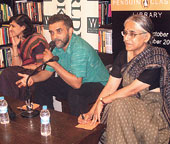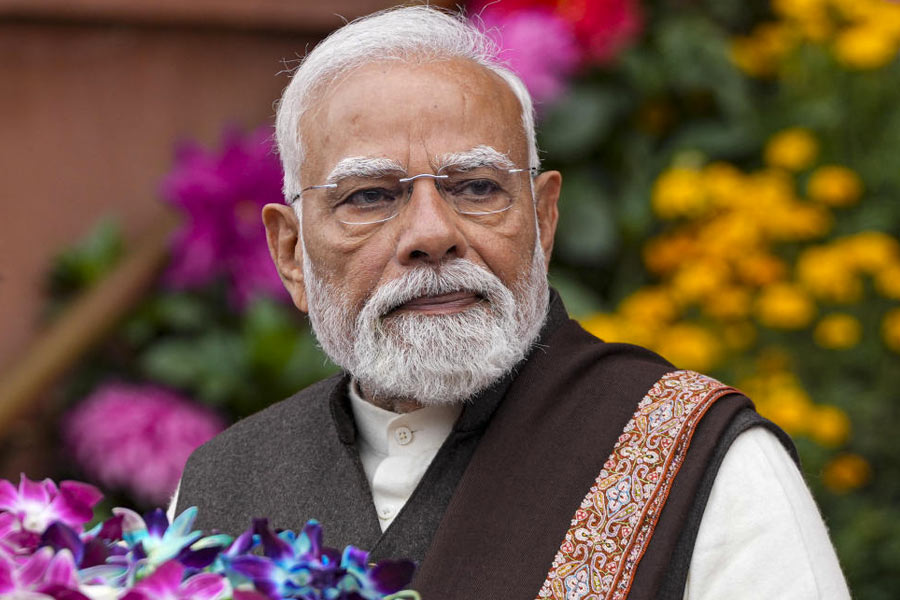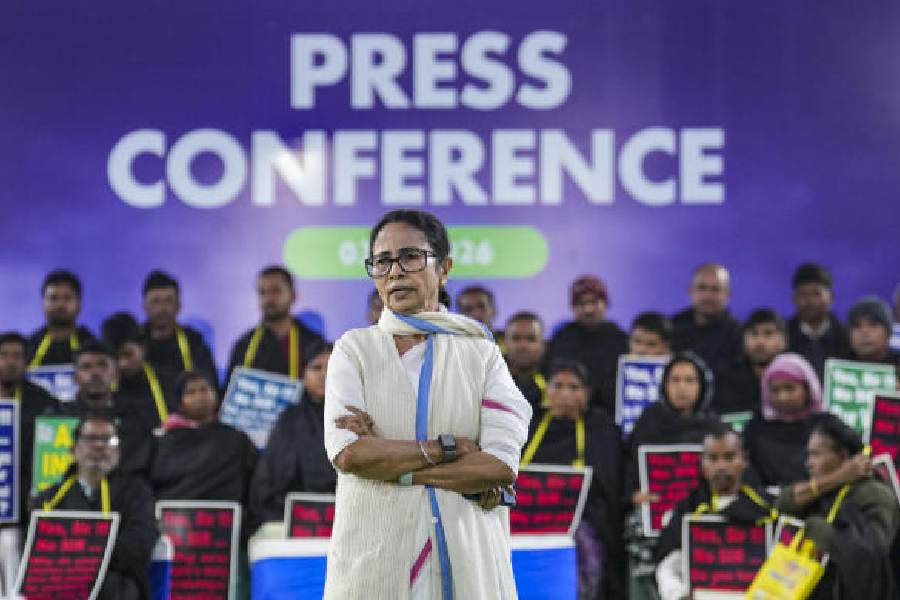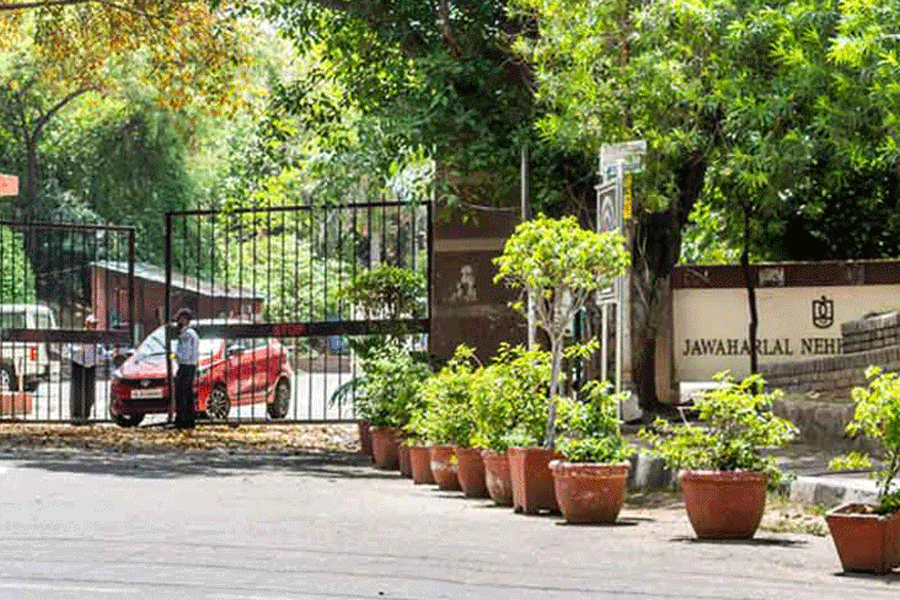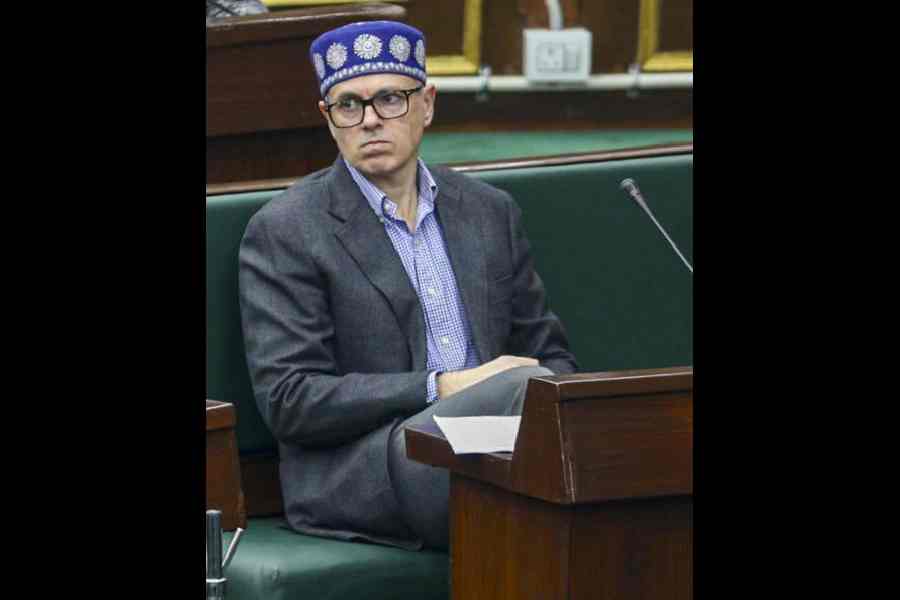 |
| (From left) Tapati Guha-Thakurta, Samantak Das and Supriya Chaudhuri in conversation. Picture by Sudeshna Banerjee |
 |
| Andre Beteille |
As a student of sociology, the first challenge was to get the name of the leading Indian social anthropologist right. But little did one know that Andre Beteille himself had to deal with an identity crisis as a child.
This and many more interesting nuggets from his personal life came to the fore in a chat with Beteille at the launch of Remembered Childhood, Essays in Honour of Andre Beteille, published by Oxford University Press at Raj Bhavan recently.
Beteille’s first woman PhD student, Malavika Karlekar, and his admirer, Rudrangshu Mukherjee, got together to put together this unusual book.
“It was a jolly romp for most of the contributors talking about things they hadn’t thought about. There were a lot of silences and ellipses,” remarked Karlekar.
Mukherjee said the idea of the Festschrift probably emerged from the many breakfast meetings he had had with Beteille at India International Centre, Delhi. He urged Beteille to talk about his “unique, privileged” Franco-Bengali childhood.
But the academic was not too sure of it being privileged, however, “romantic it might sound”. The author of class, caste, social stratification had himself fielded questions about his “identity ever since I was a child”.
He joined Brahmo Boys’ school in north Calcutta and made friends and visited their homes. A quiet, obedient and well-behaved boy, he was popular with mothers who inevitably would get around to asking “how did your parents marry”. “A boy of 12 or 13 years of age shrinks from such questions,” he said.
Beteille was packed off to an Irish Christian boarding school in Patna along with his elder siblings where he found himself speaking in Hindi when being forced to speak English.
Beteille was candid about the breakdown of his parent’s marriage. “My mother joined the nationalist movement and my father, a colonial, never accepted that.” However, it is curious how Beteille nurtured a loving relationship with both his grandmothers.
Classic call
Some questions never stop being debated. Samuel Butler wrote about it in the late-19th century, so did T.S. Eliot in the mid-20th century. Frank Kermode, the literary critic, published a book on the subject 34 years ago. But the question “What makes a book a classic” can still spark animated discussion as was in evidence at Worldview Bookstore in Jadavpur University where Penguin Books had put on display its Penguin Classics series.
Professor Supriya Chaudhuri of the department of English, Jadavpur University, laid down the basic tenets, pointing to the origin of the word in the Latin classicus (meaning ‘of the highest class’ of the five classes of Roman citizens divided by Servius Tullius). What started out as referring to ancient Greek and Roman works took on characteristics of durability and universality. “ By the time Eliot was writing, he was doing so under a sense of threat in a world where wisdom has been lost in knowledge and knowledge in information. The world was needing to redefine the canon.”
Art historian Tapati Guha- Thakurta started by associating the term classical with a strong civilisational content of high antiquity. But classic has a certain elasticity and can be taken outside the classical and canonical. She cited the Asterix comics as a popular classic.
Samantak Das of Jadavpur University pointed to the inherent dichotomy in a series like Penguin Classics. He also spoke of how requirements of a classic change over time.
But what emerged as the biggest criterion by consensus was durability— referring to both constant circulation and continuing relevance.

